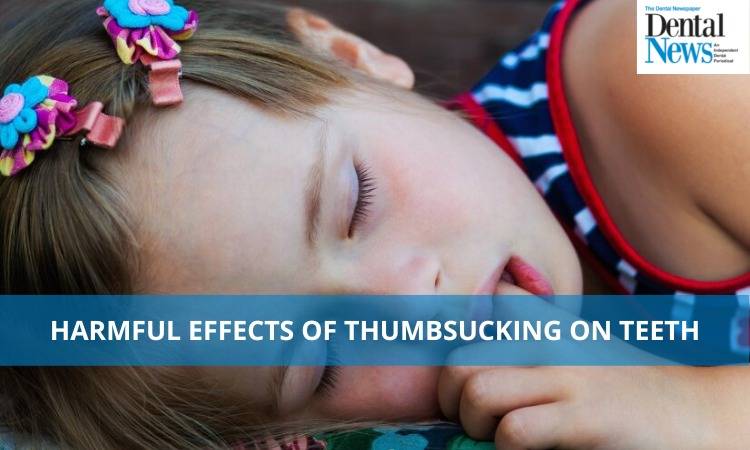
Is thumb sucking harmful? Is there such a thing as thumb-sucking teeth? We're here to help you understand thumb sucking, when it can become an issue, and the best ways to support your child.
Parents who are worried about their child's thumb-sucking frequently contact dentists with questions. The majority of kids who suck on their thumbs do so because it is comforting. Although thumb sucking is a typical activity among kids, it can be bad for their teeth and general oral health if done frequently.
Your youngster may only need encouragement to cease sucking on a finger or thumb to break the habit during the day. An orthodontist might be required to prevent difficulties if parents wait until their kids outgrow the habit and the youngster stops much later in life.
Effects of thumb sucking on teeth over time
Thumb sucking can have a variety of negative effects on the mouth, teeth, and gums. This is due to the constant pressure that sucking and using the thumb apply to the mouth's roof, jawbone, and teeth. It could result in any of the following:
Excessive overbite, where the top teeth stick out from the rest of the mouth and jaw
When the mouth is closed, the top and bottom teeth should touch. However, malocclusion bite problems can cause the bottom teeth to tip inward or outward.
Changes the contour of the jaw, which can affect the symmetry and sensitivity of the roof of the mouth as well as cause a speech problem.
Thumb-sucking causes palatal constriction, which happens when the roof of the mouth doesn't fully develop.
Improper dental alignment, abnormal tongue swallowing behaviour, and altered breathing
Finger or thumb calluses
However, if the thumb sucking stops by the time the permanent teeth come in, most of these problems will disappear or never arise. Children who forcefully and continuously suck their thumbs may be more likely to experience the negative effects.
How to encourage your child to quit thumb sucking?
Reinforcing positive actions rather than penalising negative ones may be a healthier and more effective way to control your child's behaviour. The explanation for this can be partially found in the possibility that stress and guilt may cause thumb-sucking to become more prevalent and decrease the appeal of punishment.
Thumb sucking, like any other unpleasant habit, can become habitual, and your youngster may not even be aware they're doing it. Discourage them with warnings to grab their attention before engaging in the practice.
The following actions could be taken to stop your toddler from sucking their thumb:
Change their stress-relieving behaviour to something more constructive, such as cuddling with a beloved toy, stuffed animal, or blanket.
Make a chart with stickers to keep track of their conduct, and when they receive a particular number of stickers, give them a reward.
Avoid putting your child in stressful situations by not humiliating, blaming, or punishing them for thumb sucking.
Use prizes and praise to encourage positive behaviour, such as not sucking one's thumb.
You might discourage the tendency by applying a bandage to their thumb or covering their hand with a blanket at night.
Inform your child, if they are old enough, about the impact thumb sucking can do on their oral health.
Ensure that your child's discomfort and tension are reduced or managed.
Consult your dentist
Nevertheless, it's a good idea to ask your dental professional for advice if you're having problems motivating healthy adjustments on your own. To stop thumb sucking, they might suggest using a bitter drug, thumb-sucking protection, or (in extremely rare circumstances) a dental appliance. Knowing more about what can improve your child's behaviour for the better and what will damage them is essential while trying to assist them.

Dr Amna Bilal
The author is a contributing writer at Dental News Pakistan and can be reached at amna0795@yahoo.com

